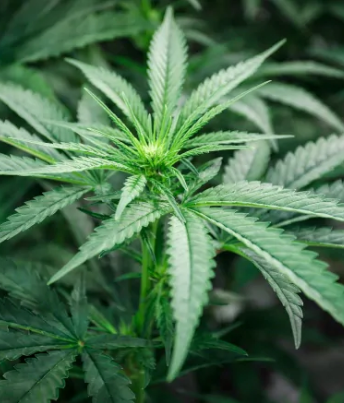
6 HARMFUL CANNABIS MYTHS DEBUNKED
6 HARMFUL CANNABIS MYTHS DEBUNKED
Nearly a century of negative propaganda has kept generations of Americans in the dark about the benefits of cannabis. Instead of cannabis facts we got cannabis lies and misinformation.
MYTH #1: CANNABIS SMOKE CAUSES LUNG CANCER.
Cannabis smoke isn’t exactly healthy, but it’s never been scientifically associated with serious lung ailments.
Medical professionals frequently cite myth #1 to dismiss cannabis as an unsafe tool for medical use.
However, research led by Dr. Donald Tashkin at UCLA has shown that cannabis does not increase risk for serious lung diseases such as lung cancer, emphysema, and respiratory infection compared to nonsmokers – even despite evidence that cannabis smoke does contain some nasty carcinogens and combustion byproducts. Theories for this finding are based on the anti-cancer effects of the cannabis plant’s phytocannabinoids.
It should be noted though that Dr. Tashkin’s research did identify some negative outcomes for long-term cannabis smokers. Specifically, long-time cannabis smokers did have more chronic bronchitis than nonsmokers – that is, they experienced irritated airways, sore throat, wheezing, and cough. But these ill effects are reversible and non-life threatening. Cannabis smokers experiencing these side effects should decrease or eliminate smoking of cannabis and try gentler administration methods, such as vaporization, tinctures, or edibles.
MYTH #2: CANNABIS IS ADDICTIVE.
Believe it or not, cannabis can actually help people break addictions to harder substances.
The first step in debunking myth #2 is to define the term addiction.
Addiction is the compulsive seeking and use of a substance despite harmful consequences such as failure to meet work, social, or family obligations. An addiction dominates a person’s life at the expense of all else.
Studies suggest that 9% of cannabis users become addicted to the plant. Many informed parties feel this statistic is likely inflated because it counts individuals who have completed court-ordered addiction treatment for their cannabis use in order to avoid stiffer penalties.
The reality is most cannabis users are not compulsively driven to use the plant, and can stop using cannabis whenever they want. But in stopping, they may experience recurrence of the symptoms for which they have routinely used cannabis. Chronic conditions typically require long-term symptom management and associated long-time use of cannabis should not be mistaken for addiction.
MYTH #3: CANNABIS KILLS BRAIN CELLS.
Cannabis is actually good for the brain because it acts as both neurogenerative and neuroprotective agent.
Myth #3 can probably be touted as the preeminent parental and/or authoritarian argument against cannabis use.
Contrary to this popular misbelief, the study of cannabinoids and cannabinoid receptors in the brain have revealed the astounding truth that cannabinoids are neuroregenerative. This means that rather than killing neurons in the brain, phytocannabinoids actually play a role in building newones.
Cannabinoids are also neuroprotective, protecting brain cells neurodegenerative disease and after brain injuries caused by stroke, concussion and other head trauma.
However, there are some caveats to consider.
The endocannabinoid system is finely tuned, particularly in the developing child and adolescent brain. Careful and responsible use of cannabis is therefore especially imperative in this population, and we recommend seeking a clinician’s care for all minors who may benefit from cannabis.
And many minors can benefit – in our clinical experience, younger patients (and their parents) report their cannabis medicine does not cause the sedating and vegetative effects they often experience from their use of prescription anti-epileptics and anti-psychotics.
And while clinical studies on the cognitive effects of long-term cannabis use continue to show inconsistent or conflicting results overall, findings in a review of studies whose subjects reported chronic and heavy cannabis use suggest an association between chronic and heavy use and deficits in cognitive functions such as decision making, concept formation and planning after periods of abstinence of 3 weeks or more.
What constitutes “chronic and heavy” cannabis use in many of these studies, however, is not clearly defined. As always, we recommend using the lowest effective dose to minimize such potential, unwanted side effects.
MYTH #4: CANNABIS CAUSES SCHIZOPHRENIA.
Too many physicians blame schizophrenic relapses on cannabis without actually diving deeper.
This harmful myth involves a classic statistical error – if you’ve ever taken a statistics course, you will likely recall that correlation is not causation!
Indeed, cannabis has not been shown to cause schizophrenia. But many people with mental illnesses, schizophrenia included, are known to self-medicate and self-soothe with cannabis. Thus, studies may show increased cannabis use amongst those with mental health conditions, but this does not prove a causal link between the plant and the illness.
We should be careful here not to ignore possible side effects of cannabis – specifically high-THC cannabis – which could include anxiety, paranoia, and psychotic symptoms when used in high doses or in susceptible individuals. But let’s also not forget – the phytocannabinoid CBD is known to be anti-psychotic, and has been used successfully to help manage schizophrenia.




